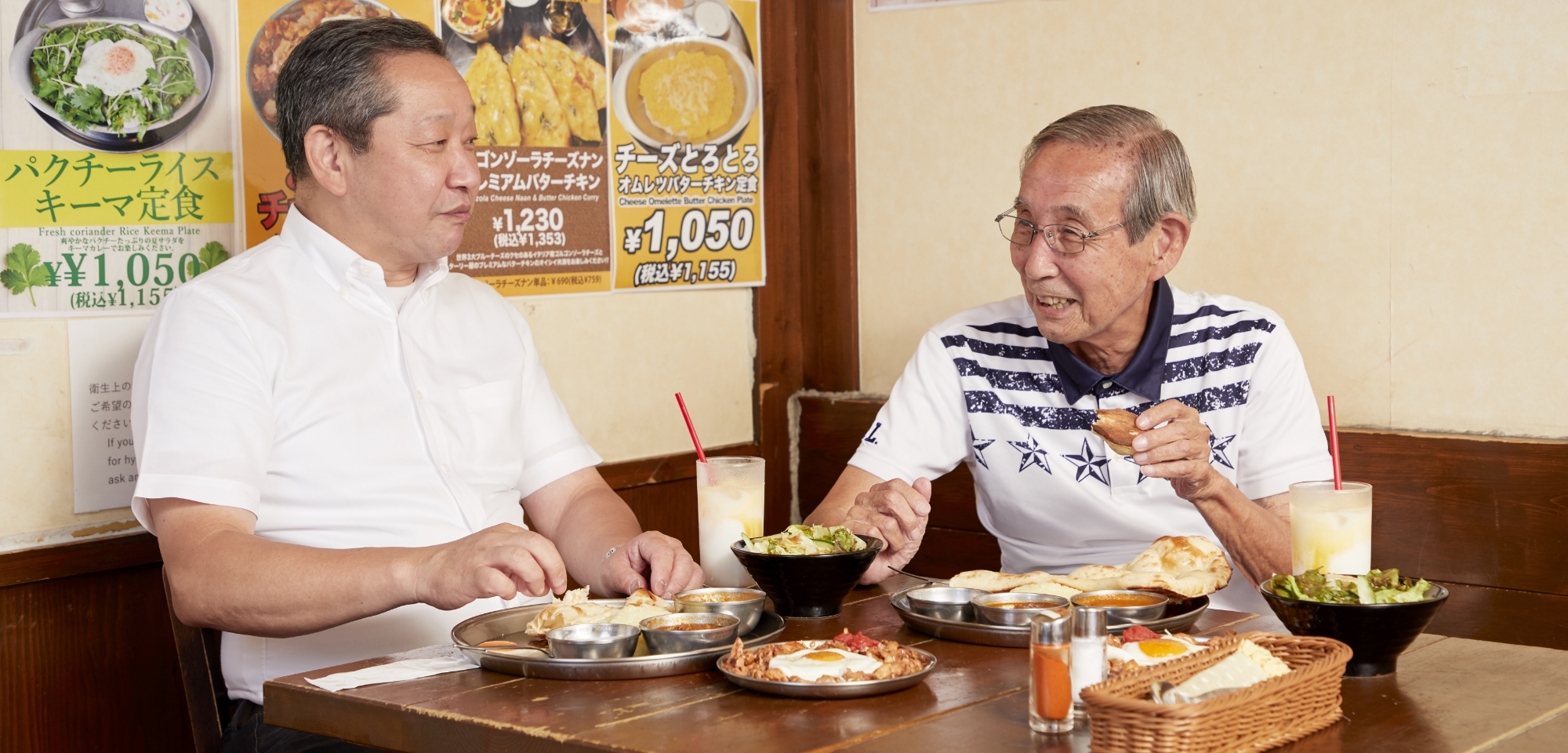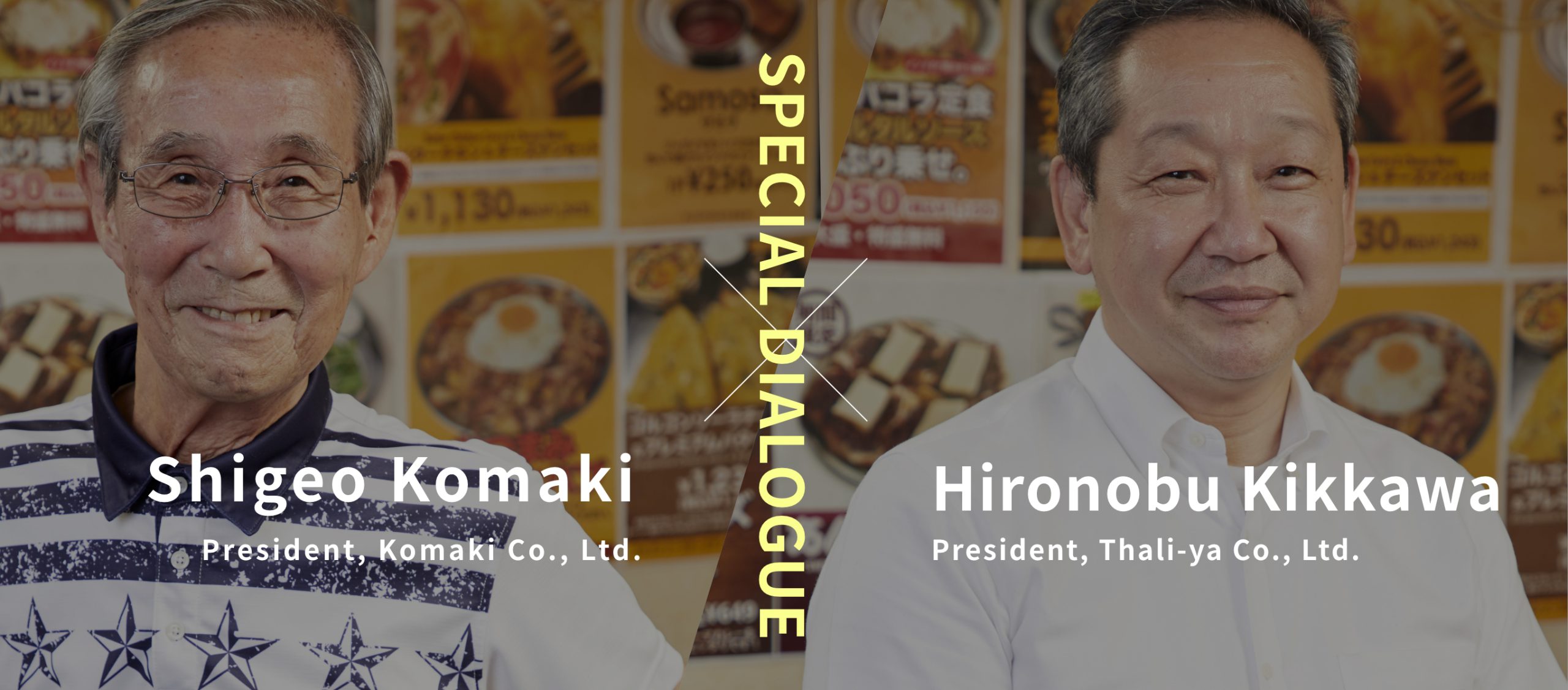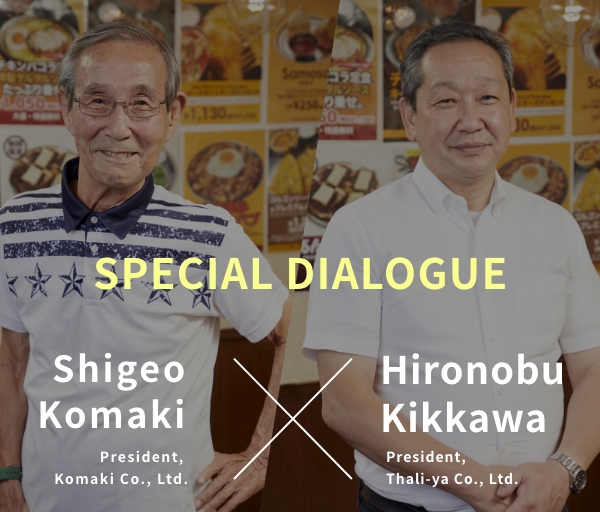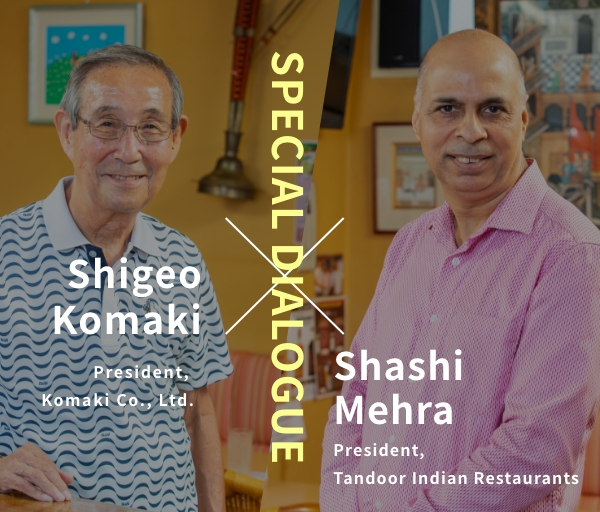How Komaki met Thali-ya, the Indian restaurant at the end of a long queue
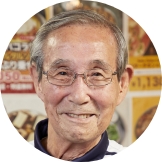
Komaki
About 20 years ago, I was driving past Shinjuku when I spotted an Indian restaurant with a long queue of people waiting in line. That was my first encounter with Thali-ya.
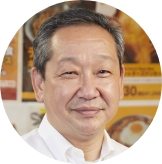
Kikkawa
Our main shop in Shinjuku, which was still our only shop at that time.

Komaki
At that time, we were receiving new requests from various Indian restaurants, and I remember the moment I saw the queue, I felt that maybe this restaurant will be contacting us soon, and we did a day or two later. I went there right away and was really surprised to find that the shop owner there was a Japanese person named Mr. Kikkawa.

Kikkawa
Back then, and even now, it’s pretty rare for an Indian restaurant to be run by a Japanese person.

Komaki
That’s right. Actually, before I was contacted by you, I had received four or five contacts from other Japanese owners. However, since all of them did not know how to make curry and just hired foreign employees, many of them just closed shops once they clashed with their employees. After that, I wound up turning down all requests from Japanese-owned Indian restaurants. In that landscape, Thali-ya restaurant was different. What surprised me at first was that when I visited the restaurant, you came out of the kitchen. Back then, there were only a few Japanese who could make naan, so I was surprised when I heard that you had learned to cook it yourself at an Indian restaurant and then went out on your own. So, how was it that you decided to start Thali-ya?

Kikkawa
Thank you. Well, after graduating from university, I started working at a supermarket as a new graduate and was in charge of sales promotion at the produce section, offering free samples in the store and so on. I had always dreamed of running a restaurant, but I needed funds to do so, so after working at the supermarket for about six years, I set up my own business, first starting a company to plan and manage sales promotion activities. That business took off well, and I continued it for more than 10 years. Then, around 12 years after its establishment, when I felt that the world was changing and that it might be tough to keep going, I remembered my dream of running a restaurant business. Then, I began to think about what theme to use my knowledge and experience in the sales promotion business to launch a restaurant. What I particularly emphasized was that the cycle of trends should be slow. From my experience, if the cycle is fast, you will be preoccupied just following it, which is very dangerous for a business. We also took into consideration the fact that a type of business that can be run by a small number of people makes it easier to keep the company going, and as a result, we narrowed down our business to three categories: stand-up buckwheat ‘soba’ noodle shops, curry shops, and sandwich shops. Incidentally, the curry shop I had in mind at first was not Indian cuisine but Western-style, but at that time, an acquaintance introduced me to an Indian restaurant in Ginza, where I was allowed to study, and I learned about Indian cuisine for about two months, which has been useful to this day. I realized that working in the same market as that restaurant would never be viable. So I decided to shift my focus a bit, set my consumer target as “beginners who have never eaten Indian food before,” and decided to open an “Indian set meal restaurant” limited to one-plate style dishes for under 1,000 yen. This was the beginning of Thali-ya, a concept that has remained unchanged to this day.

Komaki
I see. Thank you, it was interesting to hear about the roots of Thali-ya.

Kikkawa
I’m happy to have this conversation with you, too. Of course, love of curry is at the core of it all, but after we launched Thali-ya, I was introduced to Komaki-san by an acquaintance in the same industry and asked you to supply us with ingredients, and our relationship has continued to the present day.
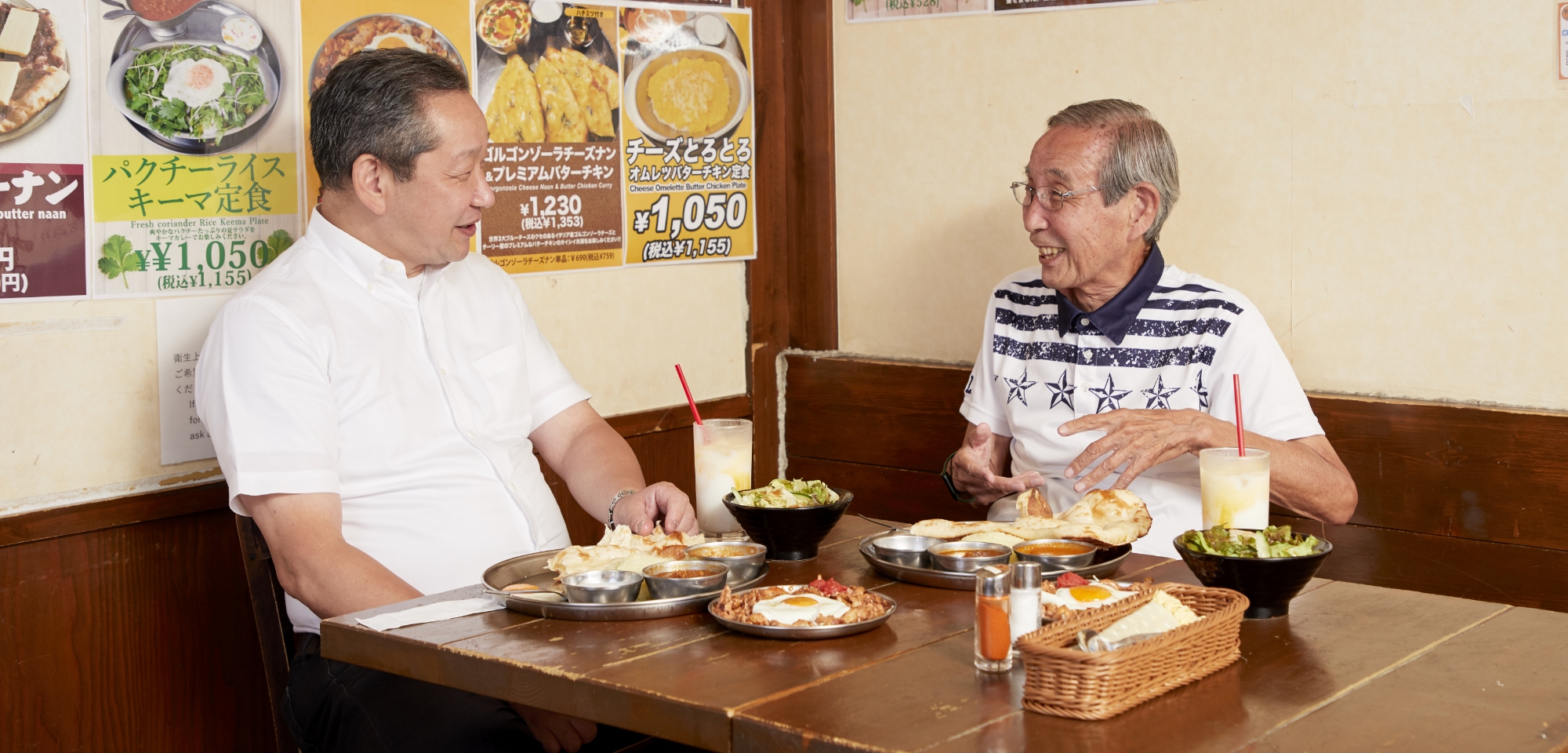
Reliability is the key for being loved for a long time

Kikkawa
I think the reason why our relationship with Komaki has lasted as long as it has is because you, President Komaki, value the relationship of trust. Not just with us, but in general, I believe that once a solid business relationship is established, it will continue for a long time.

Komaki
Now that you mention it, many of our customers have been with us for many years.

Kikkawa
And in the case of Komaki, most of your business comes from referrals, correct? Whenever we talk about which trading company is the best supplier in this industry, Komaki’s name always comes up first.

Komaki
Thank you very much. Actually, when we started this business, there was a time when the number of restaurants we dealt stopped growing. This was because more than 90% of the owners of Indian restaurants were foreigners, and we couldn’t communicate with them in their language. So after much thought, we took the step of switching to ordering by fax because we couldn’t understand what was being said over the phone. For example, by distributing order forms with a list of products such as “トマトホール (canned whole tomatoes)” in English beforehand, we could understand their orders without words. Also, many of them were opening restaurants with little money and didn’t have equipment like fax machines or freezers to stock food items, so we provided the equipment and set up a system that made it easy for them to order. Of course, that involved some initial cost, but since we were able to provide 80% of the ingredients for those Indian restaurants, the return was worthwhile. As a result of these efforts, before we knew it, we had a growing number of business partners.

Kikkawa
Interesting. Also, foreign owners rarely change their business partners once they’ve decided, and they spread the word if they like something, so it sets up a chain of events. I think this is the kind of sales that’s typical of President Komaki. You’re also known for your approachable personality as a great guy. I remember when you personally carried several dozen kilograms of flour to our shop. I think this is a little extraordinary.

Komaki
I thought that was the norm. It wasn’t smooth sailing for our company over the years. In the past, we had few employees, and if there was a vacancy, you had to pick up the slack yourself, so there was a lot of running around.

Kikkawa
That being said, the President usually doesn’t carry them himself. On the other hand, I felt really grateful that you came to Thali-ya among the many stores that existed. You were always open and available to us, even on days when it was your day off.

Komaki
That’s because I still want to help the Thali-ya shop. Actually, I used to avoid answering the phone on my days off. But even so, I was still concerned that if a customer had to call me on an off day, it might be because they had something urgent. If I answer the phone and the caller says “Mr. Komaki, a customer reserved us for a banquet and I really need some ingredients,” I can’t just stand still so I wind up delivering them to the restaurant.

Kikkawa
This ‘Komaki spirit’ of “If someone is in trouble, let’s help” is probably the biggest reason why people refer Komaki to others. Even if we ask for help and say “please just open your warehouse, we’ll pick up the goods!” you still find a way to bring then to the shop somehow. I think this kind of thoughtfulness is the reason why Komaki is loved by everyone.
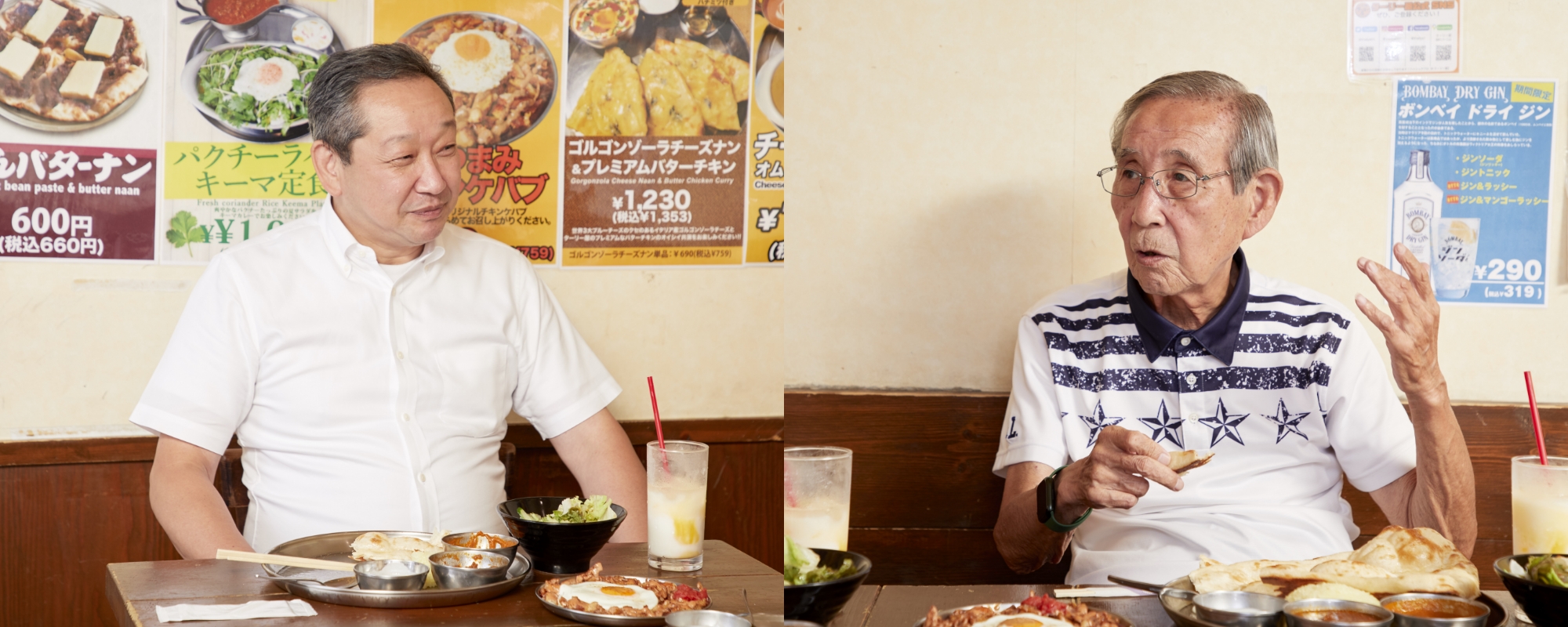
Preserving those unwavering feelings and culture in the future

Komaki
What do you have in mind for the future of Thali-ya?

Kikkawa
We would like to continue to operate Thali-ya as an “Indian set menu restaurant.” Recently, so-called “Asian dining,” which combines Indian, Thai, and Vietnamese cuisines, has been gaining popularity. Indian cuisine is relatively suitable for lunch and not so suitable for evening banquets. For this reason, Asian dining is becoming very popular as a way to meet the demand for alcoholic beverages. However, our concept is an “Indian set menu restaurant,” and we have no intention of changing this. Of course, there are advantages and disadvantages to this type of business. Nevertheless, our goal is to continue to provide a place where anyone can easily come in alone, where prices are reasonable, and you can eat and leave in no time, and we hope to spread the goodness of Indian cuisine to as many people as possible. What are your thoughts on this, Mr. Komaki?

Komaki
I share your viewpoint on “continuity,” and as they say “leave mochi making to the mochi maker,” I hope to continue providing our customers with ingredients that can be sourced in Japan. Sometimes I’m asked, “Can you handle Indian white pepper at Komaki-san’s place?” I think it would be better to leave that to a specialist Indian importer. On the other hand, we would like to value our relationships with such companies. For example, we might ask them to share some of their goods with us so that we can deliver them along with our shipment to customers. We’d like to continue relationships that allow us to easily do this. We’re also looking to expand our service area while keeping these product lines intact. Of course, this will require funds and land to build warehouses, so it’s not something that can be done immediately. Even so, we’d like to serve customers not only in the Kanto area, where we’re currently focusing, but also in the Kansai and other areas as much as possible. After all, it is cool to be “No. 1 nationwide” in any field.

Kikkawa
I understand how you feel, because we also aim to be the “No. 1 Indian set menu restaurant.”

Komaki
Right. And I also still think that we need to pass it on to the next generation.

Kikkawa
In that respect, Komaki is really wonderful. I believe that your son, who is now Executive Director, understands your personality and the culture of the company very well. That’s a positive for us. Also, from my side, I feel that both you and your son care about each other. I can see that you trust your son, and I can also see that your son is trying to preserve your wishes and ideas, so it feels like the chain of succession is being handled well. There’s nothing more difficult and important than the succession of a company, so I think it’s really wonderful that this has been accomplished with excellent communication.

Komaki
Thank you very much. I’m sure my son would be pleased to hear that. And I look forward to continuing to work with my son and my employees to support the growth of Thali-ya and other customers’ shops going forward.
